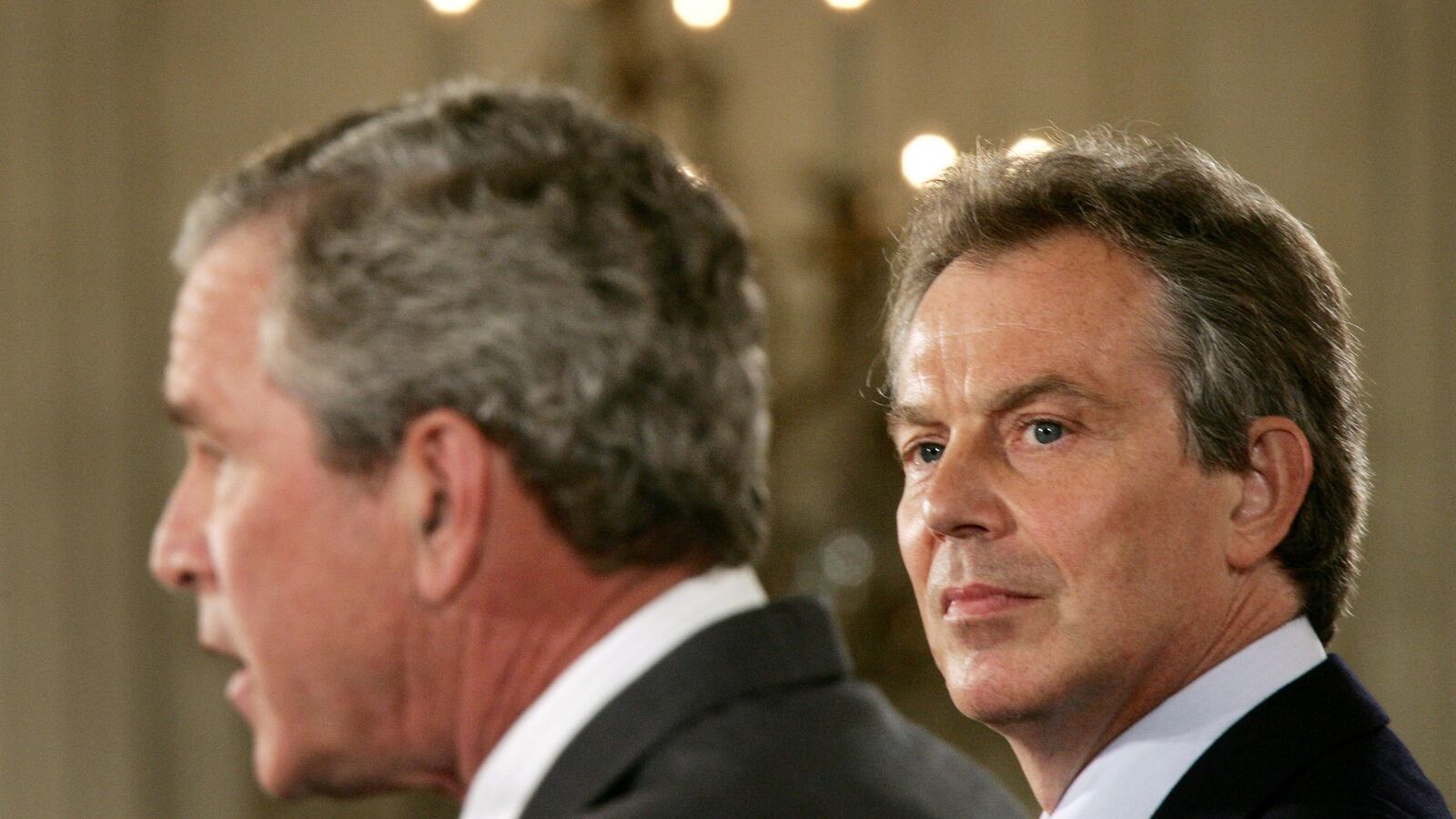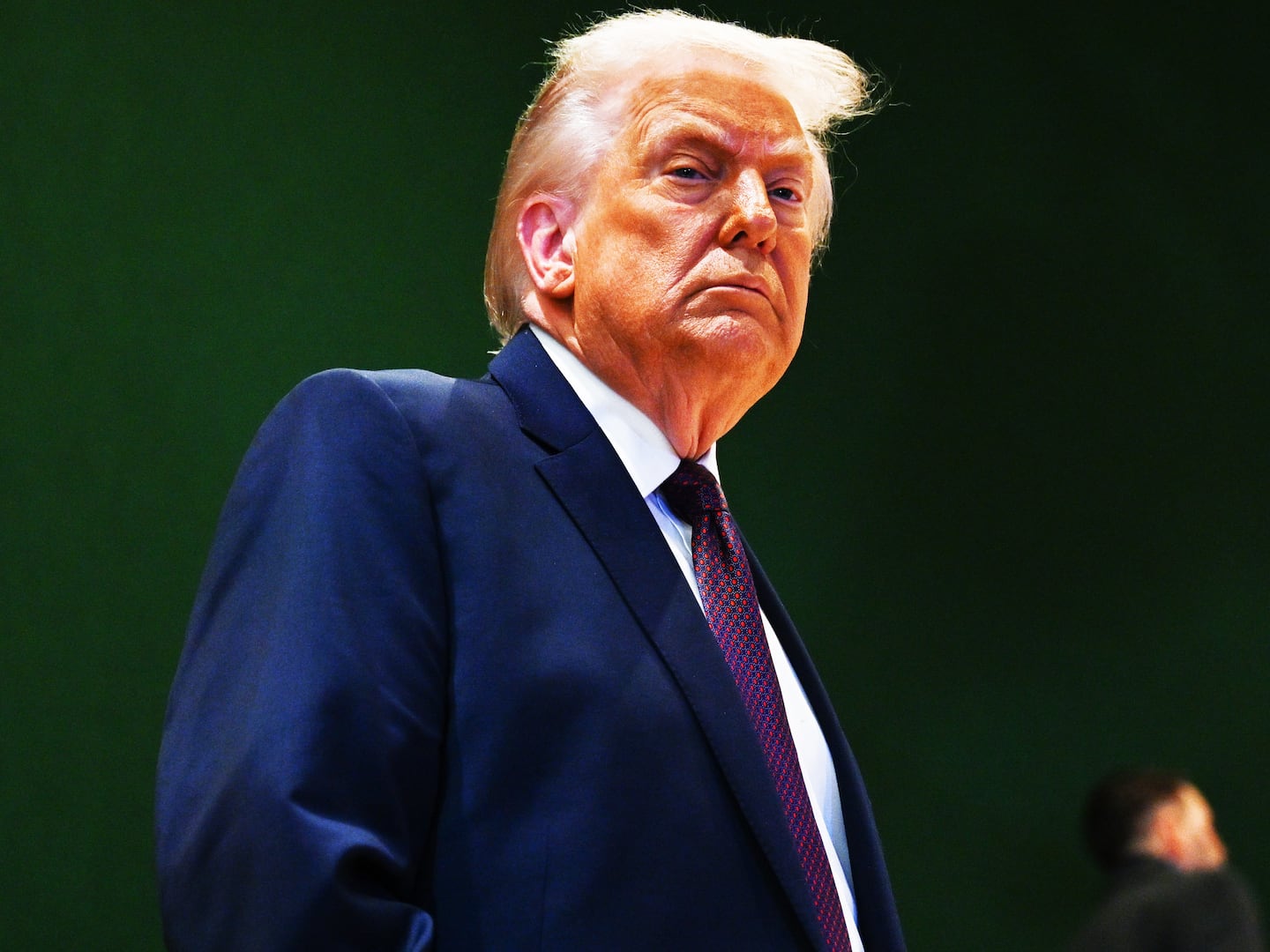LONDON — On the 28th of July, 2002, Tony Blair sent a “Note on Iraq” to President George W. Bush. It began: “I will be with you, whatever.” And with those six words, the British Prime Minister sealed his fate, committed his country to a disastrous war, and ultimately wrote the phrase that will endure on his political headstone.
On Wednesday that epitaph was confirmed by the publication of the official report into Britain’s involvement in Iraq. Chaired by Sir John Chilcot, a veteran civil servant, the report is utterly damning, all the more so for being written with the dry understatement in which Whitehall specializes.
The case for war in Iraq was made with a “certainty which was not justified,” based in large part upon “flawed intelligence,” and on assessments that were “not challenged and should have been.”
Overall, “the circumstances in which it was decided there was a legal basis for military action were far from satisfactory.”
The “planning and preparations for Iraq after Saddam Hussein were wholly inadequate,” and the “scale of the U.K.’s effort in post-war Iraq never matched the scale of the challenge.”
Chilcot concludes, in what may now become a euphemism for catastrophic failures, that “the U.K. military role in Iraq ended a very long way from success.”
No part of the case for toppling Saddam survives Chilcot intact.
The report’s 145-page executive summary shreds Tony Blair’s reputation to such an extent that reassembling it now seems an impossible—even pointless—task.
The evidence for the war was, to a very large degree, fixed around the desire to go to war in the first place. As Sir John observes, “the U.K. chose to join the invasion of Iraq before the peaceful options for disarmament had been exhausted. Military action at that time was not a last resort.”
In some respects, little of this is now a surprise. The case for toppling Iraq has been so thoroughly discredited in recent years that few people now care to remember that opinion polls in early 2003 found that most British voters supported the invasion. Nonetheless, the official imprimatur of the Chilcot report gives its findings substantially greater weight than previous assessments of Britain’s involvement in the war.
As far as Blair was concerned, September 11, 2001, changed everything. Risks previously thought containable were no longer so easily tolerated.
On the September 12, the day after the World Trade Center fell, Blair wrote a now declassified memo to Bush in which he asked: “What is the next stage of this evil? What of their [i.e. terrorists’] capacity to get hold of biological, chemical or other WMD? We know that there are countries and individuals trading in WMD and/or trying to acquire them. We need a range of sanctions and pressures to stop this.”
“Some of this,” he added, “will require action that some will baulk at. But we are better to act now and explain and justify our actions than let the day be put off until some further, perhaps even worse catastrophe occurs. And I believe this is a real possibility.”
At that moment, at least as far as the U.K. was concerned, Iraq was not an immediate priority but the seeds of the decision to go to war against Saddam Hussein were sown that day nonetheless.
By July the following year Blair accepted that: “Getting rid of Saddam is the right thing to do. He is a potential threat. He could be contained. But containment, as we found with Al Qaida, is always risky. His departure would free up the region. And his regime is probably, with the possible exception of North Korea, the most brutal and inhumane in the world.”
Yes, Blair acknowledged, “the planning on this and the strategy are the toughest yet. This is not Kosovo. This is not Afghanistan. It is not even the Gulf War.” But it had to be done and Blair was with the American president, “whatever.” This die was cast.
Chilcot concludes that, “Blair overestimated his ability to influence U.S. decisions on Iraq.”
Offering Bush, in effect, a guarantee that Britain would stand with him was a dereliction of Blair’s duty to uphold the British national interest. The relationship with the U.S. “does not require unconditional support.”
Yet that observation also lays bare another unavoidable truth: British opposition to the American adventure in Mesopotamia would not, in the end, have done much to prevent it from going ahead.
Even so, by March 2003 when it became clear that there’d be no second UN Security Council resolution authorizing military force, “The U.K. was, in fact, undermining the Security Council’s authority.”
In the absence of that second resolution, the U.K. government’s chief lawyer revised his previous suggestion that a second resolution would be required to give the government watertight legal authority for war.
The attorney general asked the prime minister to “confirm that Iraq had committed further material breaches” of past Security Council resolutions. Blair duly did so, leaving Chilcot to observe drily that, “The precise basis on which Blair made that decision is not clear.”
In London, unlike Washington, the case for war was not advanced on the need for regime change. Attention focused instead on Saddam’s WMD capabilities. The intelligence services’ judgments on that question were presented to parliament “with a certainty that was not justified.”
As Robin Cook, the former foreign secretary who resigned from Blair’s cabinet in protest at the war, warned in March 2003: “Iraq probably has no weapons of mass destruction in the commonly understood sense of the term—namely a credible device capable of being delivered against a strategic city target.”
Cook also highlighted the contradiction at the heart of the case for military action: “We cannot base our military strategy on the assumption that Saddam is weak and at the same time justify pre-emptive action on the claim that he is a threat.”
The report also highlights a breakdown in cabinet government. Blair ran the war operation as though he was a president, not a prime minister. The U.K. cabinet “did not discuss the military options or their implications.”
Instead there was an “assumption that there would be a well-executed U.S.-led and UN-authorised operation in a relatively benign security environment.”
This, to put it mildly, did not prove the case.
Chilcot said Wednesday that “Mr. Blair told the inquiry that the difficulties encountered in Iraq after the invasion could not have been known in advance. We do not agree that hindsight is required.”
On the contrary, “The risks of internal strife in Iraq, active Iranian pursuit of its interests, regional instability, and al Qaida activity in Iraq, were each explicitly identified before the invasion.” Moreover, “Ministers were aware of the inadequacy of U.S. plans.”
Disaster loomed.
Having broken Iraq, the occupying coalition forces now owned it. But “the scale of the U.K. effort in post-conflict Iraq never matched the scale of the challenge. Whitehall departments and their ministers failed to put their collective weight behind the task.”
If much attention has hitherto been preoccupied with the case for and run-up to the war, the bulk of Chilcot’s report examines the sorry history of the failure of the post-war occupation. In a devastating judgment, Chilcot concludes that, “In practice, the U.K.’s most consistent strategic objective in relation to Iraq was to reduce the level of its deployed forces.”
In those circumstances, defeat begins to seem inevitable. The British army was, functionally speaking, defeated in the field in Basra, reduced to making squalid deals with the leaders of Iraqi militias to preserve even a fig-leaf of normality and peace in the city. This, Chilcot argues, was “humiliating.”
Hence the understatement of the year, that “The U.K. military role in Iraq ended a very long way from success.”
Undaunted, Blair insisted on Wednesday that the report, while cataloguing the mistakes made, exonerated him from charges he lied to parliament and to the British people. But this official verdict on his record on the biggest issue of all, the one that would define his time in office, is as withering as it is damning, as grim as it is exhaustive.
The cost of Blair’s folly, as measured in blood and treasure, was astonishing. This was a war of choice in which almost all the choices taken were made on the back of shoddy intelligence, wishful thinking, and a determined attempt to avoid looking reality in the face.
It leaves Blair’s reputation in ruins and, more gravely, will be remembered—even by those who initially supported the war—as a grievous stain on Britain’s post-WWII record.






